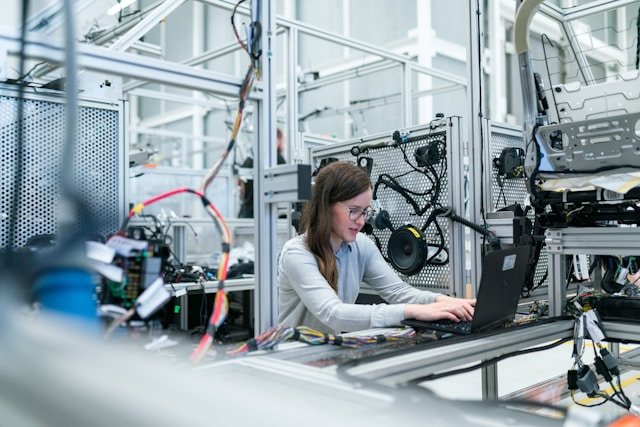Careers in Satellite Operations and Maintenance: Ensuring Effective Space Communications
- Key Roles in Satellite Operations and Maintenance
- Educational Pathways
- Key Skills and Expertise
- Career Opportunities
Satellites play a crucial role in modern communications, navigation, and Earth observation. The operation and maintenance of these satellites are vital for ensuring their effectiveness and longevity. This article explores the careers involved in satellite operations and maintenance, highlighting the key roles, skills, and educational pathways required.
Key Roles in Satellite Operations and Maintenance
1. Satellite Operators
Satellite operators are responsible for monitoring and controlling satellites from ground stations. They ensure that satellites are in the correct orbit, manage their payloads, and perform regular system checks. Operators respond to anomalies and coordinate with other team members to maintain optimal satellite performance.
2. Maintenance Engineers
Maintenance engineers focus on the upkeep and repair of satellite systems. They develop maintenance schedules, perform diagnostic tests, and implement repairs. Their work ensures that satellites remain operational and can fulfill their missions.
3. Communication Engineers
Communication engineers specialize in the transmission and reception of signals between satellites and ground stations. They design and maintain communication networks, troubleshoot signal issues, and ensure that data is transmitted accurately and efficiently.
4. Systems Engineers
Systems engineers oversee the integration and performance of all satellite subsystems. They manage system requirements, conduct risk assessments, and coordinate testing and validation efforts. Systems engineers ensure that satellites function as intended and meet mission objectives.
5. Data Analysts
Data analysts process and interpret the data collected by satellites. They use statistical and computational methods to extract valuable insights from satellite data, supporting applications such as weather forecasting, environmental monitoring, and telecommunications.
Educational Pathways
1. Bachelor's Degree
A bachelor's degree in aerospace engineering, electrical engineering, computer science, or a related field is the minimum requirement for most roles. Coursework typically includes subjects such as orbital mechanics, telecommunications, signal processing, and systems engineering.
2. Master's Degree and PhD
Advanced positions, particularly in research and development, often require a master's degree or PhD. Graduate programs offer specialization in areas such as satellite communications, remote sensing, or data analysis. Research experience and publications are crucial for securing advanced roles.
3. Internships and Co-op Programs
Gaining practical experience through internships and co-op programs is invaluable. Many universities and aerospace companies offer opportunities for students to work on real-world projects, providing hands-on experience and industry connections.
Key Skills and Expertise
1. Technical Proficiency
Professionals must have a strong technical foundation in their respective disciplines. This includes proficiency in satellite control software, signal processing tools, and data analysis platforms.
2. Problem-Solving Abilities
Satellite operations and maintenance often present complex challenges. Professionals must be adept at diagnosing problems, developing innovative solutions, and implementing fixes under pressure.
3. Attention to Detail
Precision is crucial in satellite operations, where even minor errors can have significant consequences. Professionals must have a keen eye for detail and a commitment to maintaining high standards of accuracy and quality.
4. Teamwork and Collaboration
Satellite operations are collaborative efforts that involve multidisciplinary teams. Professionals must be able to work effectively with colleagues from different backgrounds, communicate clearly, and contribute to a cohesive team dynamic.
5. Project Management
Professionals often take on project management responsibilities, coordinating tasks, managing timelines, and ensuring that projects stay on track and within budget. Strong organizational and leadership skills are essential.
Career Opportunities
1. Aerospace Companies
Major aerospace companies such as Boeing, Lockheed Martin, and SpaceX are key employers in the field of satellite operations and maintenance. These companies offer opportunities to work on cutting-edge projects and contribute to the advancement of space technology.
2. Space Agencies
Space agencies like NASA, the European Space Agency (ESA), and the Indian Space Research Organisation (ISRO) provide career opportunities for professionals in satellite operations. Working for these agencies often involves collaborating on international missions and contributing to scientific research.
3. Telecommunications Companies
Telecommunications companies operate and maintain communication satellites that provide global connectivity. These companies offer opportunities for professionals to work on satellite networks and support the growing demand for satellite-based services.
Conclusion
Careers in satellite operations and maintenance offer the opportunity to work on the front lines of space technology. By pursuing the necessary education, developing key skills, and gaining practical experience, aspiring professionals can build rewarding careers in this exciting and ever-evolving field. Whether monitoring satellite performance or ensuring effective communication, professionals in this field play a crucial role in maintaining the effectiveness and reliability of satellite systems.
Careers in spacecraft design and manufacturing offer the opportunity to work on the cutting edge of aerospace engineering. By pursuing the necessary education, developing key skills, and gaining practical experience, aspiring engineers can build rewarding careers in this exciting and ever-evolving field. Whether working on the design of spacecraft or ensuring their successful manufacturing, engineers play a crucial role in advancing space exploration and technology.









